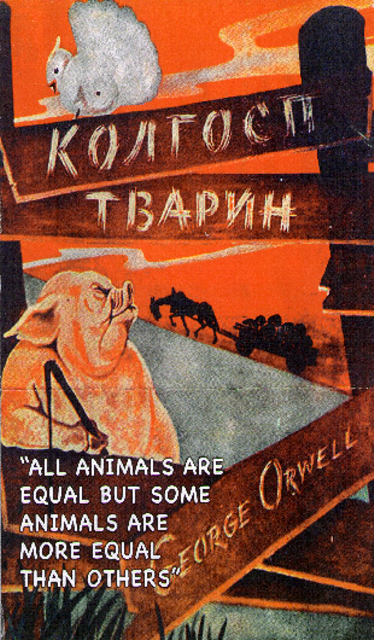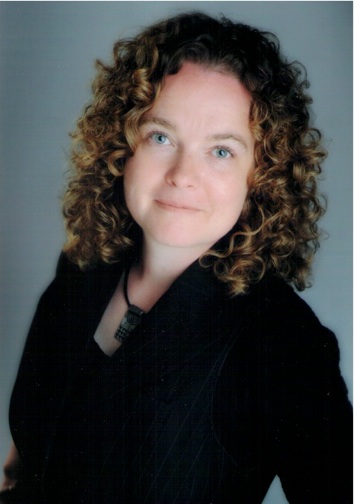In a bold op-ed published in the Winnipeg Free Press on 2 April, Dr. Catherine Chatterley has spoken out against attempts by some elements in Canada’s Ukrainian-heritage community to derail a planned Holocaust exhibit at the Canadian Museum for Human Rights (CMHR) on the grounds, broadly speaking, that such an exhibit would unduly emphasize Jewish suffering and cause to be underrepresented Ukrainian suffering in Stalin’s murderous state-caused famine in Ukraine in the early 1930s.
The campaign has been accompanied by the printing and wide distribution in Canada of offensively and antisemitically manipulated versions of an illustration that had appeared in a 1947 Ukrainian edition of George Orwell’s classic Animal Farm.
Dr. Catherine Chatterley, who teaches Modern European history at the University of Manitoba, is the founding director of the Canadian Institute for the Study of Antisemitism (CISA) which is based in Winnipeg.
“Who would ever imagine that in 2011 Canadians would be arguing about whether or not the Nazi extermination of over six million European Jews deserves a permanent place in a national museum dedicated to the subject of human rights?”
The version of Dr. Chatterley’s essay that appears on the CISA website includes the image of the new postcard which depicts Orwell’s pig (presumably representing today’s Holocaust educators — or Jews depicted as pigs as in classic antisemitic iconography — in Canada?) trying to unjustly elevate the Holocaust by incorporating an exhibit on history’s major genocide in a Canadian museum on human rights.

The image is based on the text, apparently abused with malice, from the old edition of Orwell’s work, referring to the pig being more equal than the other animals on the farm.

The postcard with both images, one on the front and one on back, has been disseminated by the Ukrainian Canadian Civil Liberties Association (UCCLA).
The antisemitic undertones go beyond hinting that modern educators and/or Jews who support a Holocaust exhibit at a Canadian human rights museum deserve to be represented as pigs. They include the not-so-subtle notion that the Communists Orwell was by most accounts lampooning were in fact ‘the Jews’, hence the recycling of the image from its classic literary use in Orwell to the populist antisemitic argument at the very heart of Holocaust Obfuscation as it is purveyed in Eastern Europe: that the Jews were basically all Communists who deserved what they got. This in turn ties in ‘neatly’ with the other side of the coin: the glorification of Holocaust collaborators in Ukraine, as in the Baltics and other regions in Eastern Europe, as supposed anti-Soviet ‘freedom fighters’.
The most far-reaching allusion is perhaps to the current Holocaust Obfuscation movement, which like its primary document, the Prague Declaration of June 2008, insists that Nazi and Soviet crimes are ‘equal’ and that the known narrative of Holocaust genocide somehow represents a diminution of respect for victims of Stalinism.
For many of the Obfuscation movement’s followers, those who believe the Holocaust to be a unique genocide of World War II, incomparable to the many other major tragedies and crimes of the era, are some kind of — pigs.
Verily, the Western view of the Holocaust was essentially criminalized in 2010 by right-wing governments in Hungary and Lithuania (the ‘red-brown jailtime laws’).
But not in Canada, where freedom to respond remains unbridled, and where elected officials, it is hoped, will rally to Dr. Chatterley’s bold, dignified, and measured response.
ADDENDUM: A Ukrainian exhibit comparing Auschwitz and the Ukrainian famine was featured at the state-sponsored antisemitic Genocide Museum in central Vilnius in 2008. This was one of the panels on display, followed by a zoom-in of the alleged quote concerning the relative mildness of Auschwitz. Is this exhibit on its way to Canada now?
.
The resurgent phenomenon of Holocaust Envy deserves to be the object of serious academic study. This journal has argued that the need for recognition of Soviet crimes as a separate issue is both legitimate and vitally important, and an alternative to the Prague Declaration is proposed on these pages.
